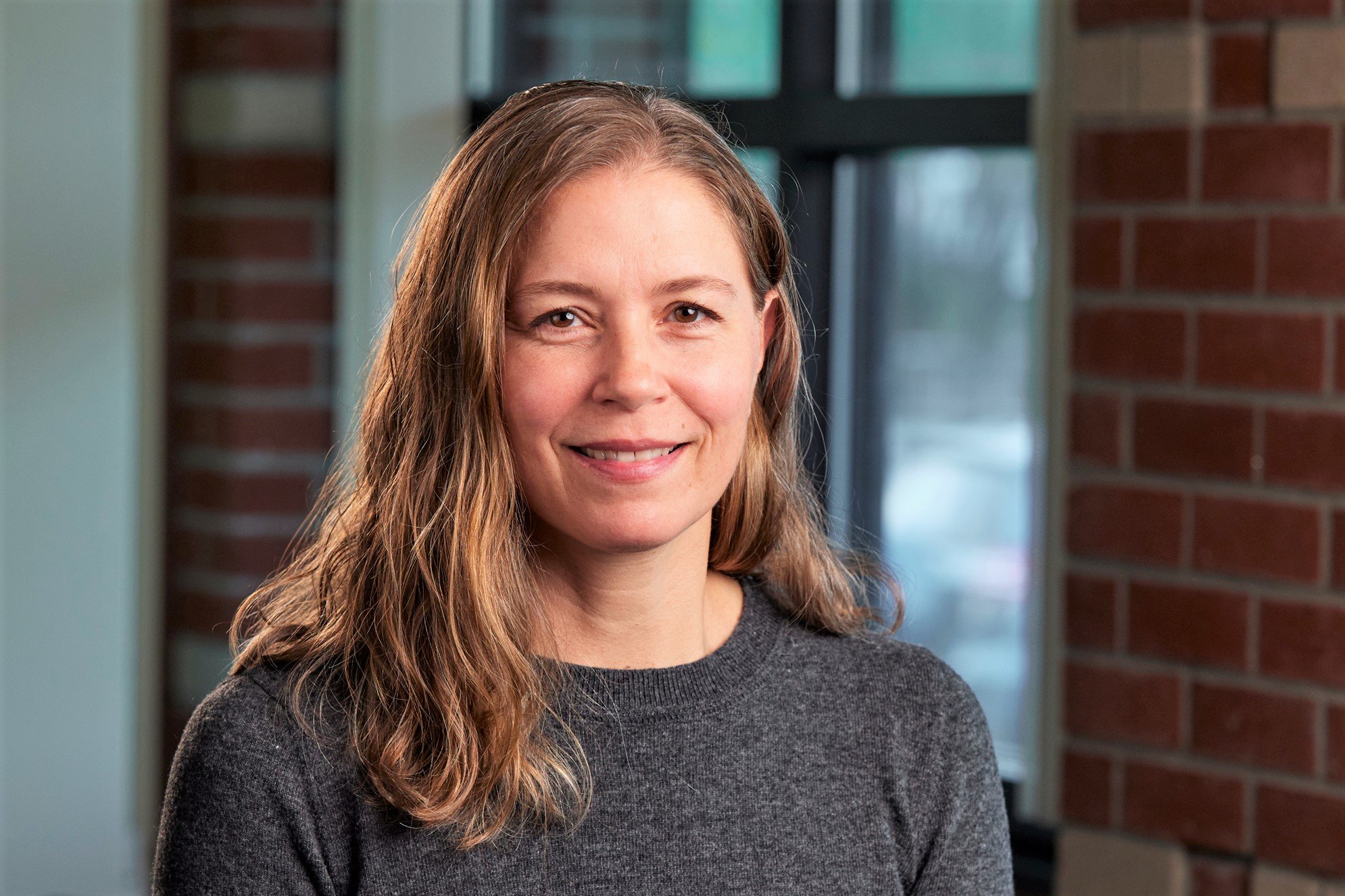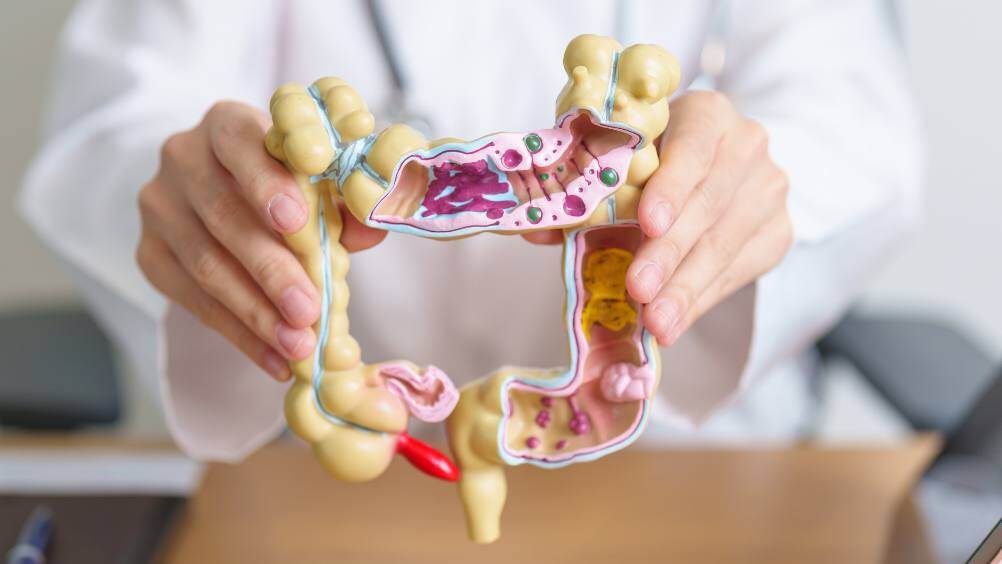Colon and Rectal Cancer Care in the Willamette Valley
Colorectal cancer is a collective term used to describe cancer that begins in the colon or the rectum. Depending on where they start, these cancers are also called colon cancer, if cancer begins in the colon, or rectal cancer, if cancer begins in the rectum. Colorectal cancer is a type of gastrointestinal (GI) cancer and the third most common cancer among both women and men in the United States.
What Type of Doctor Treats Colorectal Cancer?
When someone is diagnosed with colon or rectal cancer, their treatments will be at a cancer center led by a medical oncologist. For many rectal and colon cancer patients, a medical oncologist oversees the entire treatment process, acting as the lead physician for your cancer care team. Your oncologist will help you evaluate all of your options and determine the best combination and timing for various cancer treatments.
The oncologists at Willamette Valley Cancer Institute (WVCI) have valuable experience in the various aspects of colorectal cancer treatment, including clinical research trials investigating new therapies and combinations of therapies.

Are You Newly Diagnosed with Colorectal Cancer?
It’s normal to have many questions when you receive a diagnosis of colon or rectal cancer. Start your journey to becoming a cancer survivor by learning more about what to do first. Plus, get helpful tips for newly diagnosed colorectal cancer patients as you prepare for treatment.
Free Guide for Newly Diagnosed Colorectal Cancer Patients
Get helpful tips from WVCI oncologists on what to expect and how to prepare for colorectal cancer treatment.

More Information on Colon and Rectal Cancer:
Our cancer care specialists are dedicated to helping colon cancer patients throughout the Willamette Valley - including Albany, Corvallis, Eugene, Florence, Newport, and Lincoln City, OR.
Use the links below to learn more about colorectal cancer, including understanding your cancer's stage, genetics, and treatment options.
Frequently Asked Questions About Rectal Cancer & Colon Cancer
-
What is the Colon?
The colon is also known as the large intestine. It is a tube-like structure that has many important functions of the body. Those functions include:
- Removes fluid and salt nutrients from waste
- Temporarily stores waste
- Pushes the waste out of the body
Your colon is shaped like a little "n" with an entryway that connects to the small intestine and a discharge section (the rectum) that finally eliminates waste when you have a bowel movement.
The five parts of the colon are:
- Ascending colon
- Transverse colon
- Descending colon
- Sigmoid colon
- Rectum
-
How Does Colorectal Cancer Develop?
The most common way for colorectal cancer to develop is from a polyp. A polyp is a small growth that sticks out from the inner lining of the colon or the rectal wall.
There are two common kinds of polyps:
- Hyperplastic polyps: These polyps are usually benign (noncancerous) and form in parts of the body with repaired damaged tissue.
- Adenomas: These polyps are usually classified as precancerous. Unfortunately, if it is not removed, it could become cancerous over the next 5 to 10 years.
-
What are the Signs and Symptoms of Colorectal Cancer?
The difficult thing about colorectal cancer is that usually, signs and symptoms don't appear until the cancer has developed significantly or spread to other areas of the body. Another complicated factor is that many of the symptoms can also mimic other intestinal conditions such as irritable bowel syndrome. However, this is why it's incredibly important to talk with your doctor if you notice any changes in your health.
Symptoms of colorectal cancer may include:
- Diarrhea
- Constipation
- Narrowing of the stool (e.g., stool that is
stringy) - The sensation that you need to have a bowel movement even after you have one
- Rectal bleeding
- Blood in the stool, or extremely dark stool
- Stomach cramps
- Fatigue
- Unexplained weight loss

-
Is Colon or Rectal Cancer Hereditary?
Only 5% or so of colorectal cancers are considered to be hereditary. However, if close relatives (parents, siblings, or children) have been diagnosed with colorectal cancer, then your chances of developing colorectal cancer are 2 to 3 times higher than other people. Also, other inherited conditions such as Lynch Syndrome and Familial Adenomatous Polyposis can also increase your risk of developing colorectal cancer.
-
What is the Prognosis of Colorectal Cancer?
The 5-year overall survival rate for patients diagnosed with colorectal cancer, regardless of the stage, is about 65%. However, if it is diagnosed in the early stages, then the survival rate is 90%. At this time, about 38% of patients are diagnosed with early-stage colorectal cancer.
-
What are the Colorectal Cancer Screenings Available?
Detecting polyps as early as possible is the best way to detect and treat colorectal cancer. There are different types of screenings available.
One option screening colonoscopy is an outpatient procedure that is performed on sedated patients. In this procedure, a flexible scope equipped with a lighted camera is used to inspect the entire colon and rectum. Typically, any detected polyps will be removed at this time.Preparation for this treatment may include drinking a clear prep liquid or a prep pill.
For instance:
It is generally recommended that patients with an average risk of colorectal cancer should begin screening at 45 and (if no concerns are raised) do so every ten years thereafter. Of course, there are some exceptions to this guideline.
- African Americans are usually at higher risk for colorectal cancer and should thus begin screening earlier than age 45
- Individuals with a family history of colorectal cancer should begin screening around age 40
- Any other individuals at high risk (those with hereditary syndromes, IBS, etc.) should begin screening earlier than age 45 and should screen more frequently thereafter.

-
How is Colon Cancer Detected?
There are some alternative screening options besides traditional colonoscopy. These include:
- Flexible sigmoidoscopy: uses a flexible, lighted tube that is inserted into the rectum and lower colon to check for polyps or other signs of cancer. However, this method can't check the upper part of the colon.
- Virtual colonoscopy: a screening method that requires images to be interpreted by a skilled radiologist and may be most appropriate for patients who can't tolerate anesthesia.
- Fecal occult blood test (FOBT) and fecal immunochemical test (FIT): testing used to find blood in the stool, which may be a sign of polyps or cancer.
- Double-contrast barium enema (DCBE): a testing option in which patients are given an enema containing barium which helps the colon and rectum stand out in imaging. After the enema is given, you'll then have your colon and rectum x-rayed to detect any abnormalities. This option is usually available to patients who can't do a colonoscopy.
- Stool testing: this test analyzes DNA changes in the stool to determine if further testing should be done.
-
How Do I Prevent Colorectal Cancer?
While there is no guarantee that you can prevent colorectal cancer, there are certain things that you can do to reduce your risk. Here are some considerations:
- Maintain a consistent experience routine of at least 2 ½ hours per week.
- Consume a healthy, balanced diet
- Reduce your intake of red and processed meats
- Limit daily alcohol consumption (1 drink for women, 2 drinks for men)
- Stop smoking
- Maintain a healthy weight
It's important to know your family's medical history, attend your scheduled screenings, and maintain a healthy lifestyle. You should also inform your doctor right away if you notice any changes in your health.
What is the Colon?
The colon is also known as the large intestine. It is a tube-like structure that has many important functions of the body. Those functions include:
- Removes fluid and salt nutrients from waste
- Temporarily stores waste
- Pushes the waste out of the body
Your colon is shaped like a little "n" with an entryway that connects to the small intestine and a discharge section (the rectum) that finally eliminates waste when you have a bowel movement.
The five parts of the colon are:
- Ascending colon
- Transverse colon
- Descending colon
- Sigmoid colon
- Rectum
How Does Colorectal Cancer Develop?
The most common way for colorectal cancer to develop is from a polyp. A polyp is a small growth that sticks out from the inner lining of the colon or the rectal wall.
There are two common kinds of polyps:
- Hyperplastic polyps: These polyps are usually benign (noncancerous) and form in parts of the body with repaired damaged tissue.
- Adenomas: These polyps are usually classified as precancerous. Unfortunately, if it is not removed, it could become cancerous over the next 5 to 10 years.
What are the Signs and Symptoms of Colorectal Cancer?
The difficult thing about colorectal cancer is that usually, signs and symptoms don't appear until the cancer has developed significantly or spread to other areas of the body. Another complicated factor is that many of the symptoms can also mimic other intestinal conditions such as irritable bowel syndrome. However, this is why it's incredibly important to talk with your doctor if you notice any changes in your health.
Symptoms of colorectal cancer may include:
- Diarrhea
- Constipation
- Narrowing of the stool (e.g., stool that is
stringy) - The sensation that you need to have a bowel movement even after you have one
- Rectal bleeding
- Blood in the stool, or extremely dark stool
- Stomach cramps
- Fatigue
- Unexplained weight loss
Is Colon or Rectal Cancer Hereditary?
Only 5% or so of colorectal cancers are considered to be hereditary. However, if close relatives (parents, siblings, or children) have been diagnosed with colorectal cancer, then your chances of developing colorectal cancer are 2 to 3 times higher than other people. Also, other inherited conditions such as Lynch Syndrome and Familial Adenomatous Polyposis can also increase your risk of developing colorectal cancer.
What is the Prognosis of Colorectal Cancer?
The 5-year overall survival rate for patients diagnosed with colorectal cancer, regardless of the stage, is about 65%. However, if it is diagnosed in the early stages, then the survival rate is 90%. At this time, about 38% of patients are diagnosed with early-stage colorectal cancer.
What are the Colorectal Cancer Screenings Available?
Detecting polyps as early as possible is the best way to detect and treat colorectal cancer. There are different types of screenings available.
One option screening colonoscopy is an outpatient procedure that is performed on sedated patients. In this procedure, a flexible scope equipped with a lighted camera is used to inspect the entire colon and rectum. Typically, any detected polyps will be removed at this time.
Preparation for this treatment may include drinking a clear prep liquid or a prep pill.
It is generally recommended that patients with an average risk of colorectal cancer should begin screening at 45 and (if no concerns are raised) do so every ten years thereafter. Of course, there are some exceptions to this guideline.
- African Americans are usually at higher risk for colorectal cancer and should thus begin screening earlier than age 45
- Individuals with a family history of colorectal cancer should begin screening around age 40
- Any other individuals at high risk (those with hereditary syndromes, IBS, etc.) should begin screening earlier than age 45 and should screen more frequently thereafter.

How is Colon Cancer Detected?
There are some alternative screening options besides traditional colonoscopy. These include:- Flexible sigmoidoscopy: uses a flexible, lighted tube that is inserted into the rectum and lower colon to check for polyps or other signs of cancer. However, this method can't check the upper part of the colon.
- Virtual colonoscopy: a screening method that requires images to be interpreted by a skilled radiologist and may be most appropriate for patients who can't tolerate anesthesia.
- Fecal occult blood test (FOBT) and fecal immunochemical test (FIT): testing used to find blood in the stool, which may be a sign of polyps or cancer.
- Double-contrast barium enema (DCBE): a testing option in which patients are given an enema containing barium which helps the colon and rectum stand out in imaging. After the enema is given, you'll then have your colon and rectum x-rayed to detect any abnormalities. This option is usually available to patients who can't do a colonoscopy.
- Stool testing: this test analyzes DNA changes in the stool to determine if further testing should be done.
How Do I Prevent Colorectal Cancer?
While there is no guarantee that you can prevent colorectal cancer, there are certain things that you can do to reduce your risk. Here are some considerations:- Maintain a consistent experience routine of at least 2 ½ hours per week.
- Consume a healthy, balanced diet
- Reduce your intake of red and processed meats
- Limit daily alcohol consumption (1 drink for women, 2 drinks for men)
- Stop smoking
- Maintain a healthy weight
It's important to know your family's medical history, attend your scheduled screenings, and maintain a healthy lifestyle. You should also inform your doctor right away if you notice any changes in your health.
Colon Cancer Doctors in the Willamette Valley
Additional Colorectal Cancer Resources
Find Colorectal Cancer Care in the Willamette Valley
When you’re ready, click the button to make an appointment with one of our colorectal cancer specialists at a location convenient to you in Albany, Corvallis, Eugene, Florence, Lincoln City, and Newport, Oregon. We know it’s essential that you get useful information so that you can choose the best treatment for you.


















